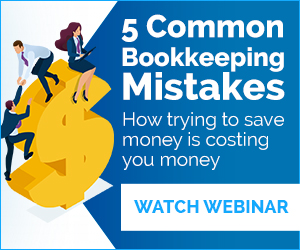One of the great things about real estate investing is that anyone can do it. The difference between a successful real estate investor and a struggling real estate investor really comes down to the numbers. The financial part of real estate investing can be difficult, especially if you’d rather spend your time acquiring more properties to rent or flip. You can’t do either of those well if you don’t have a firm grasp of your finances. Accurate and frequent bookkeeping is critical to your real estate business.
Bookkeeping for real estate investors has gotten notably easier with the rise of different online accounting technologies. Remember, to keep your real estate business compliant with the law, you’re required to keep standardized and updated records of every cent that enters and leaves your business. With the rise of online accounting software, you now have the ability to track expenses daily, and more accurately, than ever before. It’s one less thing you have to worry about!
Virtual Bookkeeping
If ease of organization is a critical aspect of bookkeeping success, online accounting tools are ideal. You can track and see everything wherever you are. At home, at the office, or on-site at a property. Real estate transactions can be complicated, and many times deals are not cookie cutter, so it’s better to input as much information as possible and let your software do the classifications for you. It’s said that 90% of entrepreneurs fail with their first few businesses and many they say it’s because of bad bookkeeping practices. The numbers got away from them because they didn’t see the warning signs. When it comes to your numbers, organization is key.
No matter how you decide to track your finances, whether it be with online bookkeeping tools, accounting software, or by hiring a bookkeeper or controller, you need to do it to manage the accounting health of your business. With so many easy-to-use bookkeeping solutions available today, whether you’re a one-person show or have several employees, do one deal a month or 25, there’s no good reason you can’t get your bookkeeping in order today.
Bookkeeping Tips for Real Estate Investors
Don’t be afraid to immerse yourself in learning. Remember that statistic about 90% of first-time entrepreneurs failing? Part of the reason is because of how financial technology has evolved. Very few people write personal checks to pay bills anymore, opting for the ease of online bill payment. Very few people balance a personal checkbook anymore. Because of this, they don’t experience the basic fundamentals of money management, the simple act of balancing a checkbook. Yet they’re expected to know how to manage their business’ finances.
Read articles, take courses, attend workshops and immerse yourself in the learning process. It might feel like what you’re reading or listening to is in a foreign language, but really, bookkeeping concepts and best practices are fairly easy to understand and put in place.
Understand how money is spent. Here’s a great way you can self-educate yourself on the basics of bookkeeping. Use your debit card from your personal checking account or a designated credit card for all of your personal purchases and bill paying for an entire month. At the end of the 30 days, log into your bank account and see how and where you spent your money. Most banks allow you to designate entries into categories and provide easy-to-understand charts and graphs for your money usage. This will give you a good idea on how to easily track your finances, both personal and for your business.
You need a plan, and then you need to actually do it. Discipline is required when running your business. Always think about the big picture — how to reduce overall debt and make more money. Keep an eye on your expenses and ask yourself if it was necessary, did the cost justify the result, and is there a way to eliminate or reduce this expense in the future. Successful real estate investing will be very difficult if you don’t know where your money comes from or where it’s going.
In Summary
Bookkeeping for real estate investing is an important way to measure the performance of your activities. Check your bookkeeping often to review the financial health of your business. Use simple online tools and software to help you keep track of your finances and engage the services of a qualified and knowledgeable real estate investing bookkeeper to help keep you on track. When tax season rolls around, you’ll be thankful you did.


